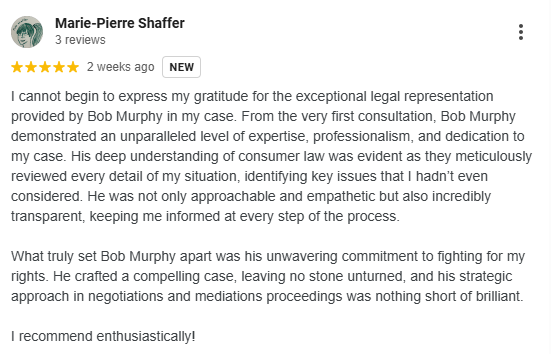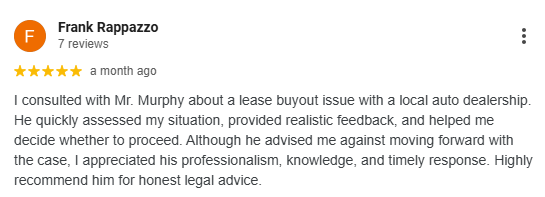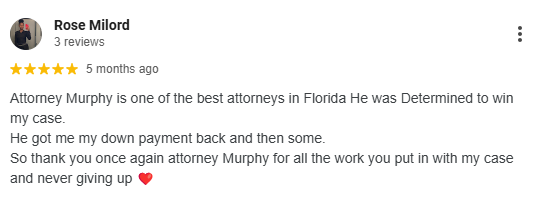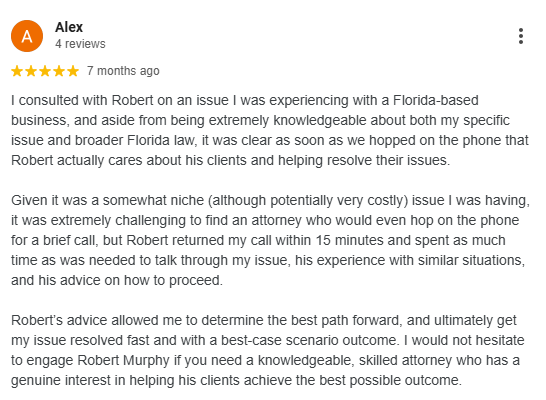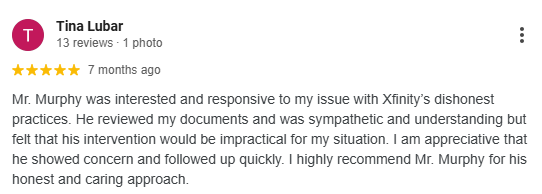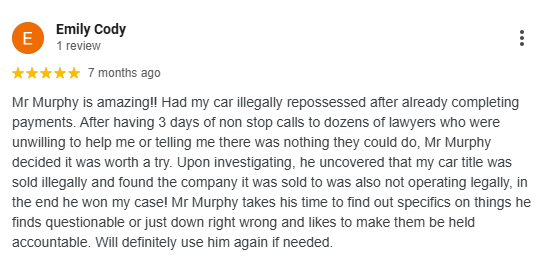Frequently Asked Questions
FAQs
Typically, if you have received automated calls on your cell from a creditor or debt collector, you can bring a lawsuit against the entity that made the calls if you have not given the entity permission to call your cell. If the entity has violated the Telephone Consumer Protection Act (TCPA) by making such calls, the statute provides for damages, which are usually between $500 and $1500 for each violation.
Yes, by writing a letter to the collector telling them to stop contacting you. Once the collector has received the letter, they cannot contact you again except to inform you that no further contact will be attempted or that the debt collector or creditor intends to take a specific action against you. Of course, sending such a letter to the debt collector will not eliminate the debt (if you do indeed owe them money). The debt collector or creditor could still file suit against you.
Debt collectors may contact people about your debt, but only to learn your address, phone number and place of employment. They can only do this once. However, debt collectors cannot tell anyone, other than you and your spouse, that you allegedly owe money. And if you have an attorney, he or she is the only person a debt collector can speak to about it.
Debt collectors can contact you at work initially, but if you inform them in writing or over the phone that you are not allowed to receive calls at work they cannot call you there again.
You can dispute a debt in writing or over the phone at any time. If you do so, and the debt collectors report to credit agencies, the debt must be listed as disputed.
Debt collectors are required to notify you in writing about how much money you allegedly owe within five days after first contacting you. They must include information about the creditor and what to do if you want to dispute the debt.
You have one year from the date the law was broken to sue a debt collector in state or federal court.
Yes, you can obtain money for any damages you suffered, including damages for emotional distress. Court costs and attorney fees may also be recovered. In addition, you can sue for statutory damages of up to $1,000 for each violation.
If you send a letter to debt collectors stating that you do not owe any money within 30 days of first receiving notice of a debt, the collector is not allowed to contact you.
However, if you are sent proof of a debt, such as a copy of a bill detailing the amount you owe, collectors can start contacting you again.
If debt collectors are harassing you, contact us today for a free consultation to discuss your situation. We can put an end to the harassment, protect your rights, and recover compensation on your behalf if any laws have been broken.
About Us
Robert W. Murphy
Consumer fraud attorney Robert Murphy is a trial lawyer who practices in the areas of consumer litigation throughout the United States. In nearly 40 years of practice, he has actively litigated cases under almost every aspect of federal and state consumer protection laws, including the Fair Debt Collection Practices Act (FDCPA). He has acted as lead counsel in the litigation of cases both individually and on a class basis in venues across the country. He is dedicated to advancing the consumer rights of Americans through both courtroom advocacy and the education of families and individuals concerning consumer protection laws. Read more…

Here's What People Are Saying About Murphy Law:
CONTACT US TODAY!
If you have been the victim of unlawful fraud or repossession, contact a consumer rights attorney at Murphy Law today.
Contact Information
- Contact Information
219 Davie Boulevard
(aka 219 SW 12th Street)
Fort Lauderdale, FL 33315
- Phone
- Fax
(954) 763-8607
Send Us A Message
"*" indicates required fields

